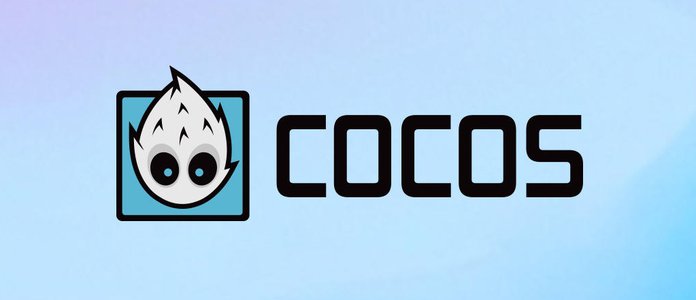Introduction
In the rapidly evolving world of gaming, ensuring the security of game data across various platforms has become paramount. With players accessing games on PCs, consoles, and mobile devices, the need for robust multi-platform encryption solutions has never been greater. This article delves into the significance of multi-platform encryption in gaming, exploring the tools and technologies that safeguard game data across diverse environments.

Understanding Multi-Platform Encryption
What is Multi-Platform Encryption?
Multi-platform encryption refers to the process of securing data so that it remains protected across different operating systems and devices. In the context of gaming, this ensures that game files, user data, and other sensitive information are encrypted and accessible only to authorized users, regardless of the platform they are using.
Why is it Essential in Gaming?
Games today are not confined to a single platform. Players often switch between devices, and game developers release titles across multiple systems. Without proper encryption, game data becomes vulnerable to unauthorized access, piracy, and tampering. Implementing a multi-platform encryption tool ensures consistent security, enhancing user trust and protecting intellectual property.
Key Features of Multi-Platform Encryption Tools
Effective multi-platform encryption solutions offer a range of features tailored to the gaming industry's needs:
▪ Cross-Platform Compatibility: Support for Windows, macOS, Linux, Android, and iOS ensures that encrypted data remains secure across all devices.▪ Robust Encryption Algorithms: Utilization of advanced encryption standards like AES-256 to safeguard data.
▪ User-Friendly Interface: Intuitive design that allows developers and users to encrypt and decrypt data effortlessly.
▪ Real-Time Encryption: Immediate encryption of data as it's created or modified, ensuring continuous protection.
▪ Scalability: Ability to handle increasing amounts of data without compromising performance.

Implementing Multi-Platform Encryption in Game Development
Integrating Encryption into the Development Pipeline
For game developers, incorporating encryption from the early stages of development ensures that security is embedded into the game's architecture. Utilizing a multi-platform and programming language encryption tool allows for seamless integration across different coding environments.
Protecting Game Assets
Game assets, including graphics, audio files, and scripts, are valuable intellectual properties. Encrypting these assets using a multi-platform folder encryption approach ensures they remain protected from unauthorized access and distribution.
Securing User Data
Player information, such as profiles, progress, and in-game purchases, must be encrypted to maintain privacy and comply with data protection regulations. Implementing tools that encrypt files multi-platform ensures consistent security across all user touchpoints.
Challenges and Considerations
Performance Impact
While encryption enhances security, it can also introduce performance overhead. Developers must balance security needs with performance requirements to ensure a smooth gaming experience.
Key Management
Effective key management is crucial. Losing encryption keys can render data inaccessible, while poor key security can lead to breaches. Implementing robust key management protocols is essential.
Compliance and Legal Requirements
Different regions have varying data protection laws. Developers must ensure that their encryption practices comply with relevant regulations to avoid legal complications.
Future of Multi-Platform Encryption in Gaming
Advancements in Encryption Technologies
Emerging technologies, such as homomorphic encryption, offer the potential to perform computations on encrypted data without decrypting it. Tools like Microsoft's SEAL and IBM's HElib are paving the way for such innovations.
Integration with Cloud Gaming
As cloud gaming gains popularity, ensuring secure data transmission and storage becomes paramount. Multi-platform encryption will play a vital role in protecting game data in cloud environments.
Enhanced User Control
Future encryption tools may offer users more control over their data, allowing them to manage encryption settings and access permissions directly, enhancing transparency and trust.
Conclusion
In the dynamic landscape of gaming, multi-platform encryption stands as a cornerstone for data security. By adopting robust encryption tools and practices, developers can safeguard their creations, protect user data, and build trust with their audience. As technology evolves, so too will the methods and tools for securing game data, ensuring that the gaming experience remains safe and enjoyable for all.
Why Choose JikGuard Game Protection?
√ On-Demand Security Assessment:
Not sure if your game needs encryption? JikGuard provides free security testing and reports, helping you identify potential risks through penetration testing and in-depth analysis.√ Minimal Performance Impact:
JikGuard’s encryption system only decrypts resources when needed, ensuring that files remain encrypted in the cache and have virtually no effect on loading speed or game smoothness.√ Seamless Multi-Channel Packaging:
Supports mother package encryption, meaning all sub-packages remain protected without requiring additional processing for different distribution channels.√ No SDK Required:
Unlike traditional solutions, JikGuard does not require SDK integration—simply run a command, and the encryption process is handled automatically.√ Ultra-Low Performance Overhead:
▪ CPU usage increase: <0.2%▪ Memory consumption: <1MB
▪ Startup time increase: <25ms
▪ Package size increase: <1.3MB
Ensuring a smooth and seamless gaming experience.
With JikGuard Game Protection, you can focus on game development while ensuring top-tier security against cheats, resource leaks, and competitive analysis. Protect your game today and keep your vision intact!



































